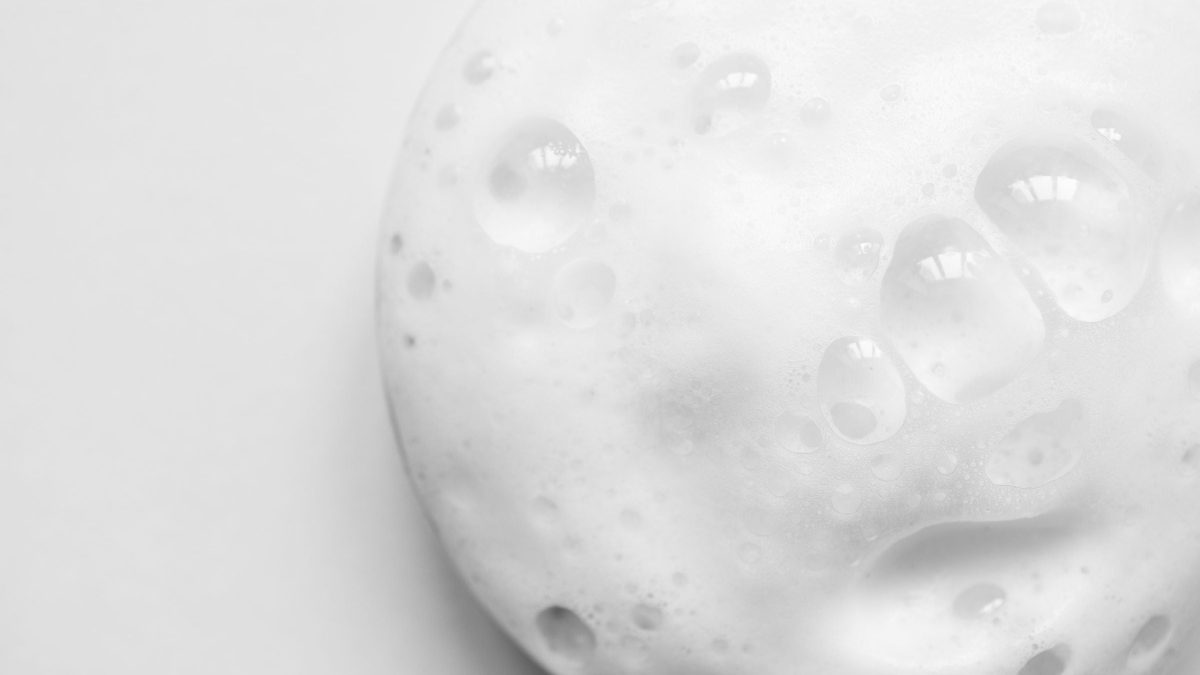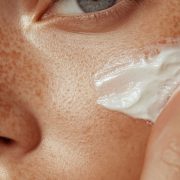A Deep Dive into What Cleansers Are, What They Do, and If They’re Worth the Hype
Posted on July 11, 2025 Written by: 100% PURE®

Ever stood in the skincare aisle wondering whether to grab a bar of soap or a fancy cleanser? You’re not the only one confused. At first glance, they seem to do the same job—clean your face—but there’s more to the story.
Skincare experts swear by cleansers, often calling them a must-have in any routine. But why are they favored over good old soap?
In this article, we’ll explore the real differences between soap and cleanser, why your skin might be begging for one over the other, and how to make the best choice for your daily routine.
Soap vs. Cleanser: What’s the Real Difference?
Soap and cleanser may both clean your skin, but they work very differently. Regular bar soaps usually have a high pH, which can upset your skin’s natural balance. This can dry out your skin and damage its protective barrier. Soaps also use strong cleansing agents that strip away natural oils—fine for your body, but often too harsh for the delicate skin on your face.
Cleansers, on the other hand, are made with gentler ingredients and are pH-balanced to match your skin. They clean without over-drying and are often made for specific skin types or issues, like acne or dryness.
In short, soap is best for the body, while cleansers are a safer, smarter choice for your face.

What Does a Cleanser Actually Do?
A in your skincare routine. It helps remove dirt, excess oil, sweat, sunscreen, and makeup that build up on your skin throughout the day. Without cleansing, these impurities can clog your pores, leading to blackheads, breakouts, and dull-looking skin.
But a cleanser does more than just clean—it also prepares your skin for the next steps in your routine. By creating a fresh, balanced surface, it allows serums, moisturizers, and treatments to absorb better and work more effectively.
When Is Soap Too Harsh for Your Face?
If your skin feels tight, dry, or squeaky-clean after washing with soap, that’s a sign it’s too harsh. This “stripped” feeling means the soap has removed not only dirt and oil but also your skin’s natural moisture, which is essential for a healthy barrier.
Study has revealed that using —especially on sensitive or acne-prone skin—can lead to increased irritation, redness, breakouts, and even worsen conditions like eczema or rosacea.
If your cleanser leaves your skin red, flaky, or burning, it’s too strong. But if your skin still feels greasy or dirty after cleansing, it might be too weak. The right product should cleanse without discomfort, leaving your face soft, refreshed, and balanced—not tight or shiny.
Understanding Ingredients: What to Look for in a Gentle Cleanser
A gentle cleanser should remove impurities without disrupting your skin’s natural barrier. The right ingredients make all the difference, especially for sensitive or dry skin.
What to look for:
Glycerin– a powerful humectant that attracts and locks in moisture.
Aloe vera– soothes irritation and reduces redness.
Natural surfactants– like cocamidopropyl betaine or decyl glucoside that cleanse gently without stripping oils.
What to avoid:
Sulfates (e.g., SLS, SLES)– harsh foaming agents that dry out skin.
Drying alcohols– like alcohol denat, which can damage the skin barrier.
Artificial fragrance– a common irritant, especially for sensitive skin.
Bonus ingredients:
Chamomile, calendula, oat milk– plant-based soothers that calm inflammation and nourish the skin.
Why Double Cleansing Might Be the Key (Especially If You Wear SPF or Makeup)
Cleansing is the foundation of any skincare routine—but sometimes, one cleanse isn’t enough. That’s where comes in, especially if you wear sunscreen, makeup, or live in a polluted environment. It involves using an oil-based cleanser first to dissolve oil-based impurities like SPF, makeup, and excess sebum. Then, a gentle water-based cleanser follows to wash away sweat, dirt, and any remaining residue.
This two-step method helps prevent clogged pores, breakouts, and dullness—while keeping the skin barrier balanced. It’s ideal for evening routines when your skin needs a thorough reset. In the morning, a single gentle cleanse is usually enough. For anyone serious about clean, clear skin, double cleansing is a smart, skin-friendly habit.

Top 5 100% PURE Cleansers Worth Trying
If you’re looking to build a gentle yet effective cleansing routine, 100% PURE offers . Whether you’re removing makeup, soothing sensitive skin, or tackling oily areas, there’s a cleanser that fits. Here are five top-rated picks to consider:
– A luxurious oil-based balm that effortlessly melts away makeup, SPF, and daily grime. Perfect as your first step in a double cleanse.
– A calming powder-to-foam formula that gently cleanses without irritation. Ideal for daily use, especially on sensitive or reactive skin.
– A light, airy foam packed with antioxidant-rich green tea. Great for refreshing the skin while maintaining balance for all skin types.
– Designed for oily or congested skin, this cleanser deeply purifies pores using activated charcoal and clay, without over-drying.
– A creamy, hydrating cleanser that soothes while it cleanses. Gentle enough for dry, irritated, or mature skin types.
Each of these cleansers is formulated with plant-based ingredients and without harsh chemicals—giving your skin a fresh start, naturally.
When to Cleanse: Morning vs. Night Debate
Cleansing at night is essential. Throughout the day, your skin collects sweat, oil, makeup, sunscreen, and pollutants—all of which can clog pores and trigger breakouts if not properly removed. Nighttime cleansing resets your skin and allows serums and moisturizers to work more effectively while you sleep.
Morning cleansing, on the other hand, depends on your skin type and environment. If you have oily or acne-prone skin, or if you sweat heavily at night, a morning cleanse helps keep pores clear. But if your skin is dry, sensitive, or your nighttime products are still intact, you can opt for a gentle rinse or hydrating toner instead.
Climate matters too—hot, humid weather often requires twice-daily cleansing, while cold, dry climates may only need one.
Why It All Comes Down to the Right Cleanser
Cleansers do much more than remove dirt—they set the stage for everything else in your skincare routine. Using the right cleanser helps maintain your skin’s natural barrier, prevents irritation, and ensures your serums and work their best.
By choosing clean, gentle formulas suited to your skin type and lifestyle, you’re not just washing your face—you’re protecting and supporting your skin’s long-term health. Brands like 100% PURE offer thoughtfully formulated options that cleanse effectively without harsh ingredients, making it easier to achieve clear, balanced, and radiant skin every day.
FAQ Section
Q: Can I just use water to wash my face?
Water alone may rinse off some sweat, but it won’t effectively remove oil, sunscreen, or makeup. A gentle cleanser is key to truly clean and healthy skin.
Q: Is cleansing twice a day too much?
Not necessarily—it depends on your skin type and lifestyle. Oily or acne-prone skin may benefit from twice-daily cleansing, while dry or sensitive skin might only need a thorough cleanse at night.
Q: What’s the best cleanser for oily skin?
Look for gel or foam cleansers with ingredients like charcoal, green tea, or salicylic acid that help remove excess oil without stripping moisture.
Q: Can a cleanser remove makeup effectively?
Some can, but for long-wear or waterproof makeup, it’s best to use an oil-based cleanser or cleansing balm first, then follow with a gentle second cleanser.
Q: What’s the difference between cleansing balm and cleansing milk?
Cleansing balms are oil-based and solid, great for removing heavy makeup and SPF. Cleansing milks are creamy, more hydrating, and ideal for gentle, daily cleansing—especially for dry or sensitive skin.




